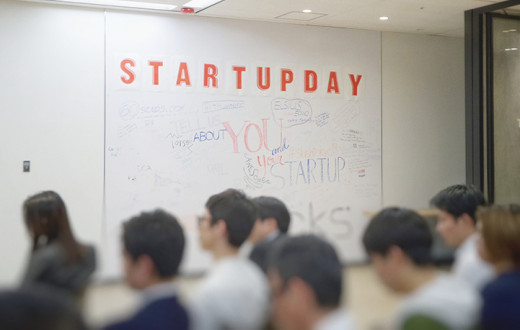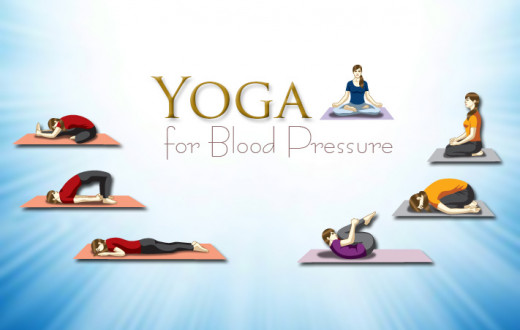By Nikita Singh┃Posted: January 02, 2019
Leverage the science and art of yoga to enhance your effectiveness!
June 21, 2018 marked the 4th International Day of Yoga (IDY). Going by social media and newspaper coverage, it seemed like millions of people across the world practiced yoga on this day.
In the words of India's Prime Minister, Narendra Modi, “Yoga is the largest mass movement for good health and well-being. From Dehradun to Dublin, Shanghai to Chicago, and Jakarta to Johannesburg, yoga is now everywhere.”
The search for yoga on social media
Being a yoga enthusiast and teacher myself, I was following yoga day celebrations across the world. While I saw a large number of posts on Facebook, Instagram, and Twitter, my LinkedIn search had relatively few posts about IDY. I wondered why?
Is it because the scale of celebrations across organizations was relatively lower? Or leaders/employees didn’t find it ‘relevant’ to express the impact yoga has had on them, despite all the evidence from research that yoga is the most holistic way to navigate stress, to achieve success, to maximize efficiency, and to enhance well-being!
Being from a psychology background, I recognize that self-awareness and self-management can help leaders enhance their effectiveness. However, through my training to be a yoga teacher, I realized just how beautifully the science and art of yoga complement psychology!
Lessons employees & leaders can learn through yoga:
1. The deeper our rest, the more dynamic our activity. Passion and dispassion improve resilience.
The ability to pursue goals with a hawk-like determination is critical. It’s imperative to have passion to overcome obstacles and achieve success. Along with this passion for success, yoga philosophy also brings out the importance of ‘dispassion’ (aka vairagya in jnana yoga), or ‘letting go’ once one has put in enough effort. Only when one has been able to ‘let go,’ can one take deep rest. Meditation, mindfulness, and taking breaks/pauses are means to this deep rest.
Moreover, dispassion is a mental state. There may be days when ‘rest’ in the form of sleep is less. However, developing the ability to be dispassionate (along with and despite our passion) is when we can combine deep rest with dynamic activity!
Why is this important to success? Dispassion helps us develop the much needed resilience to face favorable and unfavorable outcomes. It also brings the higher realization of, “I’m not my success, and I’m not my failure,” such that one always feels energized and enthused when pursuing goals. Doing so allows us to put our best foot forward day after day because we aren’t bogged down by the negative emotions brought by disappointments, or distracted by the feelings of superiority brought by success.
Dispassion brings a sense of calm and mindfulness, which is also contagious when we interact with teams, peers, clients, and other stakeholders!
2. The value of discipline enhances productivity!
Tapas, as described in Ashtanga yoga (the 8-limbed path), is about living a disciplined life. Tap, which means “to burn” is about an intense, fire-like discipline with us. Through continued practice of yoga and meditation, I’ve made many lifestyle changes (related to my food, sleep, alcohol consumption, etc.). To some, this may seem as deprivation, however, once this Tapas (or discipline) of lifestyle is practiced everyday, it’s nourishing and beneficial.
By making changes in one’s lifestyle, behavior begins to transform. This discipline can spill over to everything we do at work – from planning time, to meeting deadlines, to being conscious of our interactions and impact on others.
Tapas builds will power and personal strength to help us overcome obstacles. When all of this comes together, the result is that our productivity goes up!
3. Purpose, altruism, and organizational citizenship drive collaboration and engagement!
Organizational psychology has now established the positive correlation between citizenship behaviors at work, and employee engagement, satisfaction, etc. While some individuals engage in citizenship behaviors just because it’s ‘who they are,’ many others tend to struggle with why this is important.
We have so many of our own challenges to navigate, why bring on more? More importantly, what’s in all this extra work for ‘me?’ Of course, in a workplace setting one needs to look out for himself/herself. Having said that, I think some principles of karma yoga (the yoga of action or selfless work) can help us exhibit citizenship behaviors at work! Here are some of these principles:
- Helping others with no expectations in return.
- Doing one’s duty/job without obsessing over the outcomes.
- Uplifting another person through our actions.
The only way to experience the benefit of practicing karma yoga is to take action. By looking out for others, not only do we create a positive, upbeat environment, but also make people feel at ease with us.
Imagine how much this can improve collaboration, an area that so many of us struggle with! In a world where everyone always wants ‘credit’ (even when it isn’t due), applying some of the above principles will stand out. In fact, recent research published in the Indian Journal of Psychiatry has asserted that practicing karma yoga principles helps us maintain a state of ‘flow,’ which is also described as being ‘in the zone’ in positive psychology.
Finally, helping others and giving up worrying about outcomes increases serotonin (well-being hormone), and reduces cortisol (stress hormone), which automatically makes us feel peaceful, and calm!
This simple practice of karma yoga can help us collaborate better, enhance our focus & concentration (flow), and reduce stress! Isn’t that amazing?
4. The power of intuition for effective decision making!
“The intuitive mind is a sacred gift and the rational mind is a faithful servant. We’ve created a society that honors the servant and has forgotten the gift.” — Albert Einstein
Intuition is the idea that we make decisions without deliberate analytical thought. It's getting the ‘right’ thought at the ‘right’ moment. Many ascribe this to a sixth sense honed through mindfulness.
Whether at your university or in secondary school, we're trained to apply logical, left-brained thinking. However, intuition plays an essential role for decision-making in rapidly changing environments, especially if there are contradictions in data, ambiguity due to lack of data, or decisions that center on people (hiring, firing, or political decisions).
Leveraging our intuition doesn’t mean letting go of the left-brain logical approach; it only means combining both sides of the brain for effective decision making.
Regular practice of meditation brings a sense of tranquility that activates our parasympathetic nervous system (rest and digest). It also helps activate our hypothalamus, and pituitary gland (pea shaped in the center of the brain), such that we learn to listen to our latent inner voice.
We’re all blessed with the gift of intuition. However, everyday activity and stress cloud this intuition. Research has found that the best and easiest way to enhance our intuition is regular meditation. All it takes is 15 minutes a day of doing ‘nothing’ to start making better decisions!
If I had to sum it up in one line – Yoga is much more what we do ‘off the mat’ than ‘on the mat.’
This article was originally published by The Thrive Global Community and is re-posted here with the author’s permission.
Nikita Singh, an organizational psychologist, well-being coach, and leadership consultant, has worked internationally in diverse industries with a keen interest in holistic individual development. Her new practice as a certified health & wellness coach, strives to make a positive impact on the wellbeing of people, at personal and professional levels, and enables them to achieve lasting lifestyle and behavioral changes.























